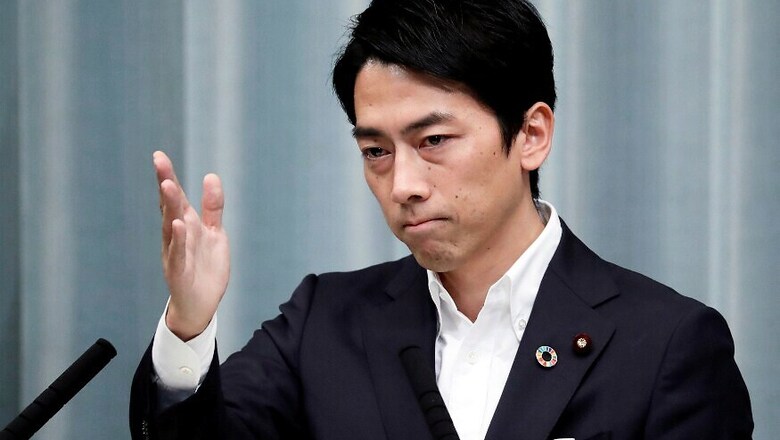
views
Tokyo: Japan's popular environment minister said he will take paternity leave when his first child is born later this month to be a good example for working fathers in Japan, where men are largely absent from child rearing.
With Japan facing an aging population and a dwindling birthrate, the government recently began promoting paternity leave. Last month, it adopted a policy allowing public servants to take more than a month of paternity leave.
Environment Minister Shinjiro Koizumi said on Wednesday he will take two weeks of leave over three months on the condition it won't affect his parliamentary and Cabinet duties.
While governors in Hiroshima and Mie in western Japan have taken paternity leave, Koizumi is the first Cabinet minister to do so.
He said it was a difficult decision, but that he is going ahead with the plan to pave the way for other male employees in his ministry and working fathers elsewhere. Koizumi is the son of maverick former Prime Minister Junichiro Koizumi and is considered a future prime ministerial hopeful.
“Honestly, I had to think over and over how I should take time off for child rearing, or take paternity leave, while fulfilling my public duty as environment minister,” Koizumi told a group of ministry officials and reporters. “Unless we change the atmosphere, government employees presumably won't start taking paternity leave.”
Japan has relatively generous parental leave policies, allowing men and women partially paid leave of up to 12 months. While recent surveys show a majority of eligible male employees hope to take paternity leave in the future, changes are coming slowly and few fathers of newborns take time off due to intense pressure to focus on work. Only 6% of eligible working fathers took paternity leave in 2018, according to the Ministry of Health, Labor and Welfare, far short of the government's modest 13% target for 2020.
Many working fathers fear taking paternity leave will damage their careers, and those hoping to take leave often face warnings from their bosses or colleagues.














Comments
0 comment